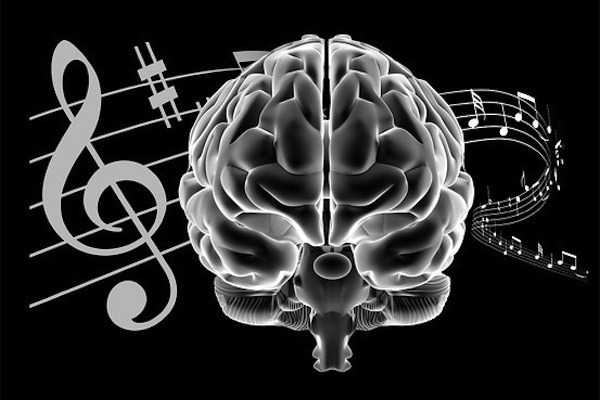Does music facilitate or impair cognitive task performance? It depends…
 __
__
Does Music Boost Your Cognitive Performance? (Scientific American):
“Music makes life better in so many ways. It elevates mood, reduces stress and eases pain. Music is heart-healthy, because it can lower blood pressure, reduce heart rate and decrease stress hormones in the blood. It also connects us with others and enhances social bonds. Music can even improve workout endurance and increase our enjoyment of challenging activities … But is listening to music the smart choice for students who want to optimize their learning?
A new study by Manuel Gonzalez of Baruch College and John Aiello of Rutgers University suggests that for some students, listening to music is indeed a wise strategy, but for others, it is not. The effect of music on cognitive functioning appears not to be “one-size-fits-all” but to instead depend, in part, on your personality—specifically, on your need for external stimulation. People with a high requirement for such stimulation tend to get bored easily and to seek out external input. Those individuals often do worse, paradoxically, when listening to music while engaging in a mental task. People with a low need for external stimulation, on the other hand, tend to improve their mental performance with music … Before students decide to slip in their earbuds, though, they should carefully consider both their musical selection and the nature of the task.”
The Study:
More than meets the ear: Investigating how music affects cognitive task performance (Journal of Experimental Psychology: Applied)
- From the abstract: Researchers have documented various (sometimes conflicting) effects of music on cognitive task performance, and have highlighted several mechanisms through which these effects may occur (e.g., arousal, mood, attention). To further understand these effects, we consider interactions between music-based, task-based, and performer-based characteristics. Specifically, we drew from the distraction-conflict theory of social facilitation and research on boredom proneness to hypothesize that music—along with its complexity and volume—facilitates simple task performance and impairs complex task performance, and that one’s preference for external stimulation (a dimension of boredom proneness) moderates these effects. We tested our hypotheses in a laboratory experiment, in which participants completed cognitive tasks either in silence or with music of varying complexity and volume. We found that (1) music generally impaired complex task performance, (2) complex music facilitated simple task performance, and (3) preference for external stimulation moderated these effects. Therefore, the data suggest that music’s effects on task performance depend on the music, the task, and the performer [emphasis added].
The Study in Context:
- Why you turn down the radio when you’re lost
- How do you respond to unfamiliar music?
- Neuroinformatics meets music: Do you actually like that song or do you merely think you do?
- Brain imaging show that patients with Alzheimer’s disease can still remember and enjoy their favorite songs
- Music as Therapy: Music, Movement, Cognition!
- What Educators and Parents Should Know About Neuroplasticity and Dance
- What are cognitive abilities and how to boost them?


